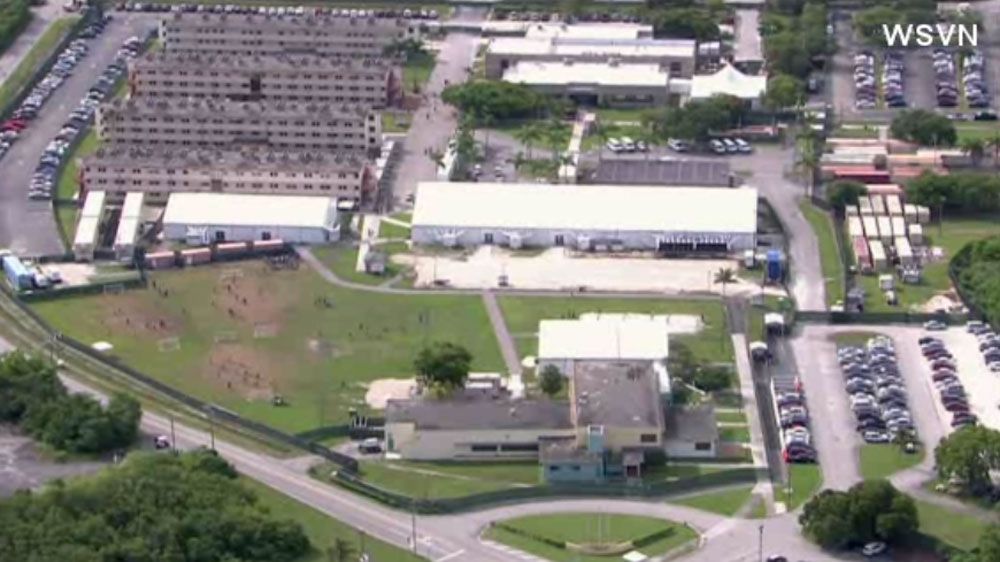HOMESTEAD, Fla. -- Senator Marco Rubio toured a facility in South Florida Friday where hundreds of migrant children are being kept.
- Rubio, journalists toured Homestead facility Friday
- Rubio said the US needs to keep families together, but it's not easy
- Sen. Nelson will tour shelter Saturday
Rubio is the first lawmaker to tour the Homestead Temporary Shelter for Unaccompanied Children, after officials turned away Sen. Bill Nelson and two other lawmakers earlier this week.
The government notified lawmakers Thursday night by email that they can tour during two time slots.
Nelson will tour the shelter on Saturday afternoon.
Rubio did not describe the privately-run facility in detail. He said it was a place doing its best to operate under difficult circumstances.
He also was not able to speak to any of the children because of privacy regulations.
"We need to insure that, irrespective of how they came here or what legal status they are under, we are the United States of America and we should have the highest standards possible," Rubio said.
Government officials also allowed journalists into the facility Friday, but without any cameras or recording devices.
The Associated Press says the facilty had dorm-like buildings where children sleep in steel-framed bunk beds, 12 children per room. There were also air-conditioned white tents where children attended classes and watched movies.
Officials said there were 792 males and 397 females, aged 13 to 17 at the facility, with more expected. All of the children are classified as unaccompanied minors, even though fewer than 70 were separated from adult relatives at the country's border.
The majority of the children are also from Central America, including countries where violence is a continuing issue.
Rubio said he believed families needed to be kept together, but the United States also needed to be sure there were no policies that made trying to get into the country illegally an attractive option.
"It's terrible when people have to move because they have to flee violence and so forth," Rubio said. "We have to ensure that, when they do arrive, that we treat them to the highest standards possible, but also that we don't have any policies in place that incentivize more people to do this in the future. It's dangerous, it's not a safe journey."
Rubio said currently policies have also encouraged a whole industry of dangerous human traffickers preying on desperate people.
On Wednesday, President Trump signed an executive order directing agencies to keep families together. Rubio said that families should be kept together, but right now the government does not have the money or the facilities to do it.
"If that's in fact the policy that we want to pursue, then that capacity needs to be created," Rubio said. "It's not just housing together, it's housing people in conditions that are safe and nurturing, and that's what we need to do."
Information from the Associated Press was used in this report.



